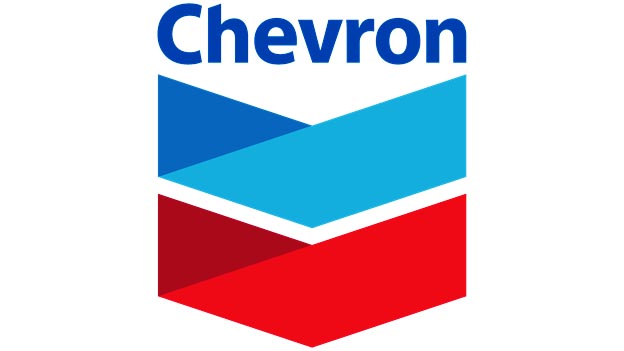To fully appreciate the evolving circumstances that attend efforts to re-attach the United States’ oil major, Chevron, to the oil industry in Venezuela, it is necessary not just to follow events closely but to seek as far as possible, to secure information on not just events as they occur, but also to understand the context in which all of this is happening.
Nothing even remotely resembling a mending of fences between Washington and Caracas has occurred up to this time so that the decision by US President, Joe Biden, to return to Caracas to work alongside the state-run Venezuelan oil company PDVSA can be seen both as hedging Washington’s bets in terms of keeping the door open to Venezuelan oil if (as we say in the Caribbean) ‘push comes to shove’. Chevron’s return to Caracas also marks the initial halting steps in the hoped-for restart of talks between the administration of Venezuela’s President, Nicolas Maduro, and the Opposition-in-Exile as well as Washington having believed that the country’s last general elections held in 2013 were stolen by the Maduro administration. If all is by no means forgiven between Washington and Caracas, the extant circumstances dictate that a generous measure of pragmatism is being applied in addressing the situation.
 Washington will apply a generous measure of pragmatism to ensuring that its oil supplies, wherever those might come from, do not become compromised by Russia’s squeeze on oil exports. Venezuela’s own economy has long been rent asunder by US sanctions imposed just over five years and which had the effect of choking off Venezuelan oil supplies to much of the rest of the world. A matter of days ago, two oil tankers, one of which will load crude oil, the first such cargo bound for the US in more than four years, were reportedly loaded. The occurrence demonstrated that when ‘crunch time’ comes pragmatism frequently trumps hardline political positions. The other, reportedly, would have been carrying a shipload of diluents used to ‘doctor’ Venezuela’s huge deposits of heavy crude reportedly concentrated mostly in the Orinoco Belt.
Washington will apply a generous measure of pragmatism to ensuring that its oil supplies, wherever those might come from, do not become compromised by Russia’s squeeze on oil exports. Venezuela’s own economy has long been rent asunder by US sanctions imposed just over five years and which had the effect of choking off Venezuelan oil supplies to much of the rest of the world. A matter of days ago, two oil tankers, one of which will load crude oil, the first such cargo bound for the US in more than four years, were reportedly loaded. The occurrence demonstrated that when ‘crunch time’ comes pragmatism frequently trumps hardline political positions. The other, reportedly, would have been carrying a shipload of diluents used to ‘doctor’ Venezuela’s huge deposits of heavy crude reportedly concentrated mostly in the Orinoco Belt.
For Chevron, the circumstances do not equate with what one might call ‘open season.’ Much of its interest in returning to Venezuela has to do with monies owing to the company for services rendered to the Venezuelan oil sector and the US license that accounts for the company’s presence in Venezuela has a ‘shelf life’ of six months and reportedly specifically authorizes Chevron “to take an expanded role at four Venezuelan oil joint ventures that produce, process and export oil, and to bring their oil to the United States.” For now, at least, the reported directive ends there. Critically, Washington’s license will reportedly re-open Venezuela’s wider oil flows and is being seen in an article on the issue as “one of Washington’s first steps to ease sanctions as an incentive for Venezuela to work with opposition leaders on a presidential election in late 2023.”
The word in circles that are close to the current Venezuela situation says that what in effect is a high-stakes gamble by the Venezuelan President, is an attempt to “regain global recognition” as Venezuela’s bona fide President.
Recent media articles had reported that while Maduro had not been invited to the meeting of Hemispheric Heads in the US back in June, his trip to the COP 27 forum in Egypt “where he rubbed elbows with French President Emmanuel Macron and John Kerry, the US government’s climate envoy,” among other dignitaries, pointed to a readiness to rid himself of the international criticism which he had had to endure over the past four years. In a world where Moscow’s ever tightening retaliatory sanctions arising out of the West’s responses to the invasion of Ukraine has created a fair measure of jitteriness in the West, Washington has already sent signals that it is unprepared to fall victim to the vulnerability of oil supply challenges. Venezuela, in the circumstances, will be seen as a proverbial port for a storm and a significant port, at that. Venezuela reportedly has the world’s largest proven deposits of oil globally though western markets have for years been denied access on account of Washington’s own sanctions.
One question that remains unanswered is whether Chevron’s return to Venezuela marks a gradual re-opening of the door to something resembling a normalization of business relations between Venezuela’s gas industry and companies in the West keen to ensure that, at least in the short to medium term, their energy supplies are assured. Another question has to do with whether or not, amongst all this, may lie the beginning of the end to Venezuela’s isolation in the West.






